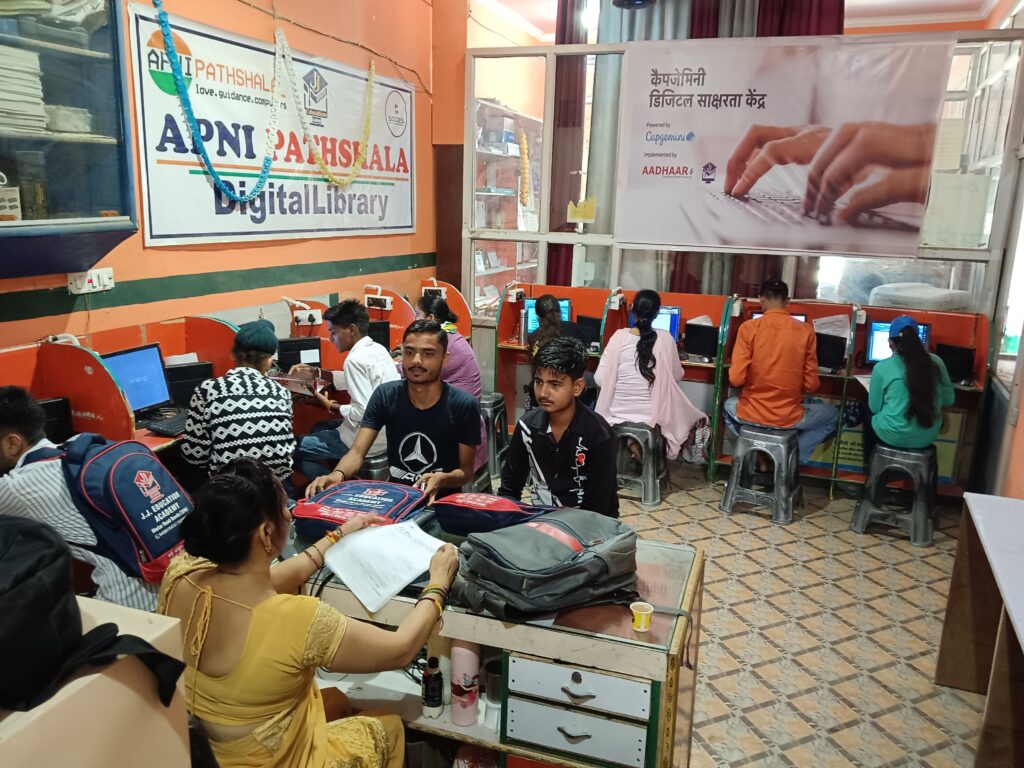In today’s tech-driven world, many parents find themselves torn between traditional books and modern screens when it comes to their child’s education. Are screens ruining attention spans—or are they unlocking new ways to learn? In this insightful conversation, Dr. Malpani speaks with a concerned parent and challenges the age-old debate of books vs. screens. What unfolds is a refreshing perspective on how we can rethink learning in the digital age.

Mr. Joshi (parent): Dr. Malpani, I really enjoyed your session today. But I’m still a little unsure about one thing. Don’t you think children learn better from books than from screens?
Dr. Malpani: That’s a great question, Mr. Joshi—and one I hear all the time. May I ask you something first? Why do you think books are better?
Mr. Joshi: Well, I grew up reading textbooks. That’s how we all learned. Books are focused. They don’t have distractions. Screens feel… flashy. Kids just hop from one thing to another. I worry they won’t develop the patience to read or think deeply.
Dr. Malpani: I understand where you’re coming from. But let me gently challenge that belief. Is it the screen that’s the problem—or how it’s used?
Mr. Joshi: Hmm… maybe both?
Dr. Malpani: Let’s look at it this way. A screen is a tool—just like a book. You can use it to binge mindless videos… or to explore the universe, learn calculus from MIT professors, or build your own website. The real question isn’t “Books or screens?” It’s “Is my child engaged and learning meaningfully?”
Mr. Joshi: That’s interesting. But books are proven. They’ve stood the test of time. Screens are still new—and addictive.
Dr. Malpani: True, books are wonderful. But let’s be honest—how many children today are excited about textbooks? Most see them as a burden, not a joy. On the other hand, a well-designed learning app or video can make the same content come alive with visuals, animations, and audio. You can curate them if you want to provide scaffolding for your child’s learning journey.
Mr. Joshi: But isn’t passive watching worse than active reading?
Dr. Malpani: It can be—but again, it depends on how it’s used. Good screen-based learning is actually more interactive. Think of a student watching a video, pausing it, asking questions to an AI tutor, exploring links, taking a quiz immediately, getting instant feedback, then digging deeper into a topic that interests them. That’s active, personalized learning.
Mr. Joshi: But can screens teach discipline and focus the way books do?
Dr. Malpani: Only if we design them to. Imagine your child using a digital flashcard system for revision, or exploring an interactive timeline of Indian history. These tools adapt to how your child learns best—and they can even help build focus by offering just the right challenge at the right time. Unlike textbooks, screens can respond. They can guide.
Mr. Joshi: I see your point. But books are quiet. Screens can be noisy, overwhelming. Isn’t that overstimulation bad?
Dr. Malpani: Overstimulation is a risk—but it’s not the tool’s fault. It’s about guidance. Just as you taught your child how to handle a book carefully, you can teach them to navigate digital content wisely. Set boundaries. Explore together. Encourage curiosity, not just consumption.
Mr. Joshi: And what about long-form reading? Will screens kill that?
Dr. Malpani: Only if we let them. There are incredible digital books, PDFs, even reading apps with note-taking and vocabulary tools built-in. Some children actually read more when reading on a screen—because it’s searchable, customizable, and always with them.
Mr. Joshi: You really believe screen learning is the future?
Dr. Malpani: I believe it’s the present—and the future. The world our children are entering is digital-first. If they don’t learn how to learn using a PC or phone, they’ll be left behind. Employers won’t ask if they read chapter 6 of the textbook. They’ll ask if they can find, analyze, and apply information—skills that screens, used properly, can nurture.
Mr. Joshi: That’s eye-opening. I think I’ve been judging screens by what I see on social media and entertainment apps.
Dr. Malpani: That’s natural. But remember—it’s not about screen time, it’s about screen purpose. A screen that teaches your child Python, lets them explore outer space, or helps them build a portfolio is far more valuable than any textbook. And the best part? It’s interactive, immediate, and tailored to their pace.
Mr. Joshi (smiling): So maybe the real question isn’t “Book or screen”—but “What kind of learner do I want my child to become?”
Dr. Malpani: Exactly. And once you make that shift, you’ll see screens as powerful allies, not enemies. It’s not about replacing books—it’s about giving your child more tools to learn, grow, and thrive.
Mr. Joshi: I’m beginning to see why a digital learning pod makes so much sense now.
Dr. Malpani: Absolutely. Imagine giving your child access to the world’s best teachers, interactive tools, AI-powered tutors, and the freedom to go deep into what they love—all from the safety of your home or community center.
Mr. Joshi: Thank you, Dr. Malpani. I’m going home to rethink how I look at my son’s learning setup.
Dr. Malpani: That’s the first step. Take matters in your own hands by starting your own digital learning pod – your children will not get a second chance!
👉 https://www.teachtoearn.in/start-a-teach-to-earn-learning-pod/
